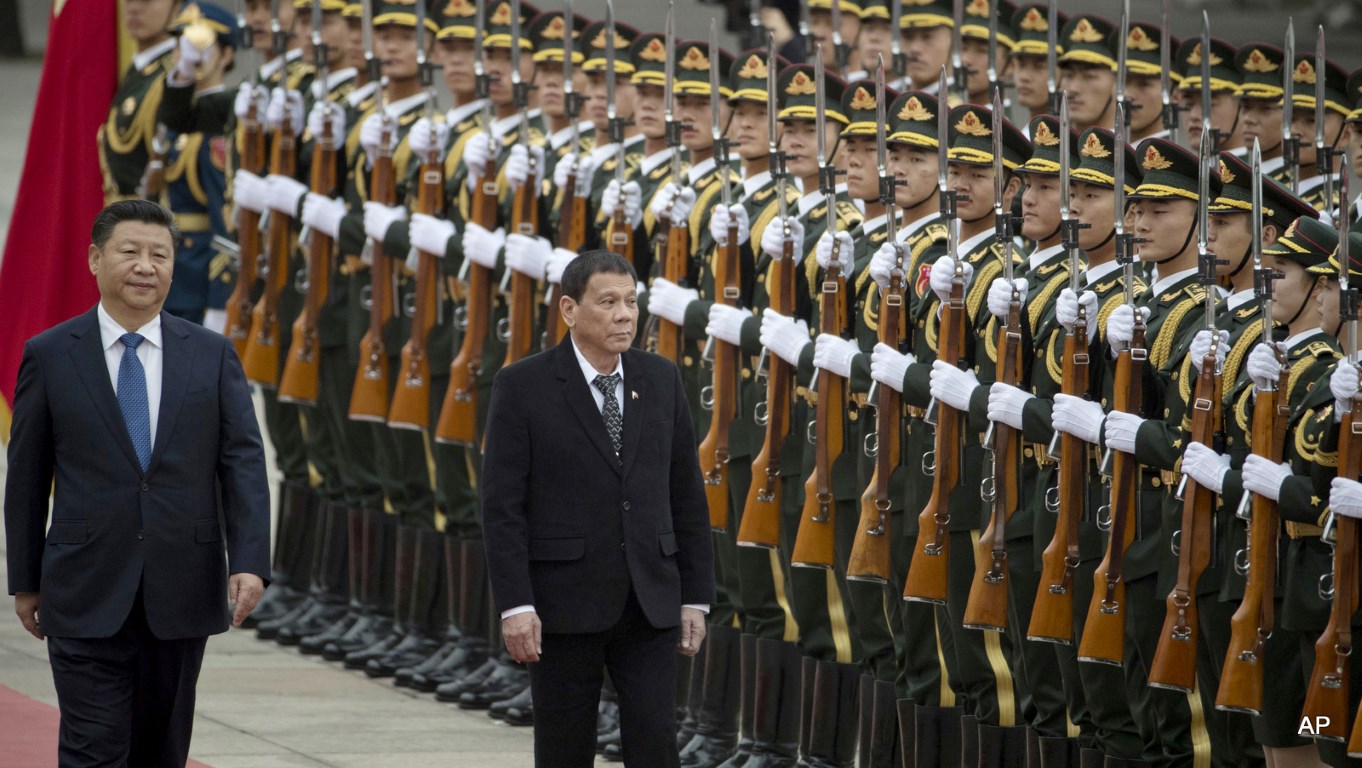China’s growing presence
November 19, 2016 | Expert Insights

On 20 October 2016, Filipino President, Rodrigo Duterte on a landmark visit to China, signed business deals worth US$13.5Billion. China is Philippines second largest trading partner. Philippines seeks from China, access for exports, weapons and boats. Importantly, both nations appear to move forward, from disputes in South China Sea, which saw the International Court of Justice (ISJ), rule in favour of the Philippines. On 02 Nov 16, Malaysian PM Najib Tun Razak commenced a visit to China and is expected to conclude trade deals worth US$ 34Billion.
What are the US interests?
Malaysia, a former British Colony has a long and close relationship with the US. US and Malaysia are trading partners and share defence cooperation. US has significant influence on Malaysian education policy. Philippines is one of the US’s oldest Asian partners and major non-NATO ally; and they signed the Enhanced Defence Cooperation Agreement (EDCA) in April 2014. And on 18 Mar 16, Philippines announced that US troops have rights to use five Philippine military bases under the EDCA.
“The immediate trigger from geo- political shift, appears to be the targeting of the Philippine President and Malaysian Prime Minister by Western Media, Human Rights activists and Courts of law.”
Are there Other Reasons to look towards China?
PM Najib Rajak stands accused of embezzling US$ 3.5Billion through the government-owned investment company, 1MBD. In a law suit filed with the US Department of Justice, approximately US$ 1Billion assets belonging to the Najib family, have been seized. Rodrigo Duterte was elected President of Philippines in May 16, with a popular mandate, beating his closest rival by over 6.6Million votes. He has since embarked on a singular mission, to eradicate the illegal drug trade. He has been accused by Human Rights activists of extra-judicial killings and invited criticism from the UN and other Western countries. However, within the Philippines, he remains a very popular Filipino leader.
Assessment
The shift in foreign policy, from US towards China is not confined to Malaysia and Philippines, alone. Thailand, Cambodia and Laos have also appreciated the benefits from increased Chinese engagement. Till now, a corner stone in US Asia-Pacific policy, has been opposing China’s territorial claims, particularly in the South China Sea. Many SE Asian countries, now believe there are more benefits, by engaging China economically. For the new US President, reasserting US influence in SE Asia, shall be a key challenge.








Comments